It has become very clear we can’t have it both ways. It’s a holy truth. What we witnessed this weekend with Break Free PNW on a peninsula in Fidalgo Bay proves it once again. This is old wisdom the Lummi nation, Lhaq ’temish, People of The Sea, know well and live deeply. The Tesoro refinery against the backdrop of Mt. Baker and the Puget Sound Shell refinery next door, superimpose themselves on all living in this sacred place of water, just as the fossil fuel economy has imposed itself on God’s Creation in every place. The American way of extractivism dominates our common lives so completely and so claims our conscience, it’s difficult to picture the beauty possible beyond the pale. And to imagine an economy to honor that beauty.
Our action followed just a few days after permission to site the proposed Gateway Pacific coal terminal at Cherry Point near Bellingham was denied on the basis of the 1855 treaty with the Lummi Nation, a cause for rapturous celebration. The treaty guarantees the Lummi people access to tribal waters. Today, out of six recently proposed coal-export terminals in Washington and Oregon, just one remains: Millennium Bulk Terminals in Longview. So we must keep on keeping on.
Break Free PNW brought citizen activists from throughout the region to west Skagit County where the two oil refineries have operated for 60 years. The event is one of dozens being held around the world to hasten a transition from fossil fuels to clean energy to combat climate change. Community resistance was spurred by the Shell Puget Sound Refinery’s proposal to build a rail offloading facility to receive shipments of Bakken crude from North Dakota. Shell and Tesoro have been receiving tar sands oil from Alberta for a couple decades already.
The power of love and justice has united our world in action. The body of God is breaking. Anacortes was one of the finale points of a 10-day, world-wide Break Free movement to draw attention to the absolute moral necessity to break free from fossil economies by keeping the majority of the fossil fuels of God’s wondrous Earth, in the Earth. St. Irenaeus of Lyons once said, “The Glory of God is every creature fully alive.” The whole world is rallying and groaning to see if the powers that rule humanity will wake up and “choose life” so we and our descendants may live.
May 3rd, the UK’s largest open-cast coal mine in Ffos-y-Fran, Wales was shut down by protestors for over 12 hours. May 4th, 10,000 rallied in Batangas City, Phillipines, demanding cancellation of a proposed 600-Megawatt coal-fired power plant. May 7, peaceful protesters blockaded and shut down the Riccarton, Christchurch branch of ANZ bank, a $13.5 billion investor in fossil fuels. May 8, in Newcastle, Australia 2,000 shut down the world’s largest coal port for a day. May 9, in Brazil, thousands cheered against fracking at a concert in the state of Paraná. May 10, at the site of Nigeria’s first oil well at Oloibiri, protestors decried the environmental and social damage that happens when the oil goes dry and a community is left with all the pollution and none of the wealth to clean it up. May 11, 3,000 people rallied in Jakarta to say coal is not a solution to pollution and it’s time to move to renewable energy. May 12, the action began in Anacortes, with 150 protestors blocking the Burlington Northern tracks, leading to the Shell and Tesoro refineries.
The Climate Dialogues and Just Transition
While the action was happening out on the rail, community conversations were orchestrated at the Transit Shed on the waterfront downtown. These gatherings were of huge import. Because, while we protest what is, compassion calls us to engage each other to imagine the world to come. And for all concerned, from Blue Herons to railroad engineers, oysters to refinery workers, we need a just transition to that world.
At the Transit Shed we listened to a nurse tell of rates of bladder, prostate and skin cancers in the Fidalgo Bay region, elevated 30%-40%-80% (respectively) and the need to do the causal research never yet done. We heard a community organizer describe the work being done to gather all the regional stakeholders in the same room to negotiate the New Economy for the region. An energy scientist and engineer told the crowd we absolutely have the structural capability to transition rapidly to 100% renewables. The people on the tracks are asking if we have the will. And the common sense.
Everyone is probably familiar with the Vagina Monologues. Few will probably know of the Climate Monologues. Go to climatemonologues.com to see excerpts of what we got to witness in person at the Shed. These are a one-woman show by actress and singer Sharon Abreu. She sits on stage and, with subtle changes in costume, dons the characters of real people from across the U.S. and around the world, telling their stories of the impact of climate disruption and corporate greed on their communities and our common lives. You might want to invite Sharon to come to your community. After each short story, she concludes with an original song. Absolutely riveting.
We Are All In the Same Canoe—-The Lummi Lead Us
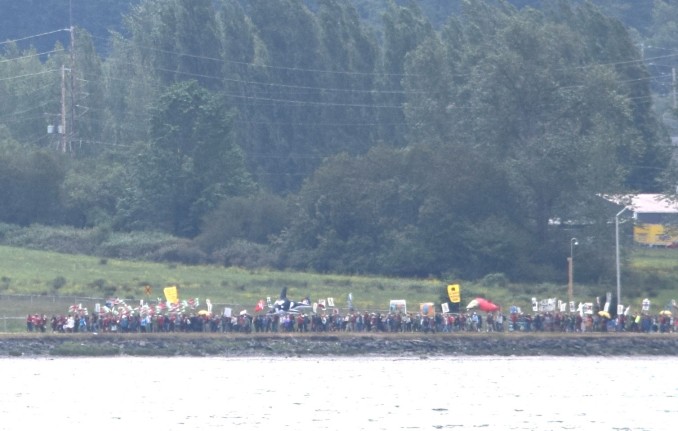
And while our protestors spent their second day on the tracks, the rest of us, 1,000-2,000 of us, followed our neighbors from the Lummi Nation, marching behind their youth and elders three miles, on a trail skirting the Shell and Tesoro plants, tanks, rails and pipelines. We stopped at March’s Point, with the bay on all sides, to participate in a Lummi ceremony of hope and healing and conversation about how to take the future into our hands as Indigenous and neighbors. Bill McKibben has said, “Our goal must be to make real the Gospel, with its injunction to love our neighbors. Not to drown them, sicken them, make it impossible to grow crops. But to love them.” We walked to demonstrate our solidarity and re-imagine our love.
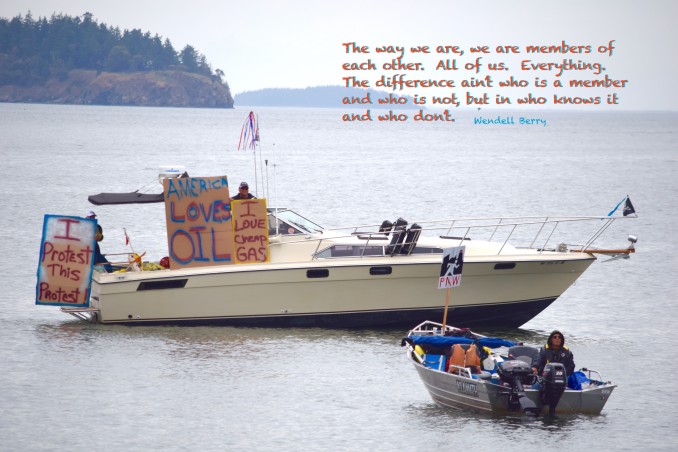
It’s impossible to describe the whole scene. It was so immense. The youth of the Lummi Canoe Family paddled the polluted waters, amid one man’s counter protest. They ceremonially demonstrated how their tradition instructs them to approach sacred shores and the domain of neighbors by asking and awaiting a gracious invitation from the ones who live there. To bring one’s canoe ashore with the promise to live generously within the limits of the gift of each place. The enduring message is that we are all in the same canoe.
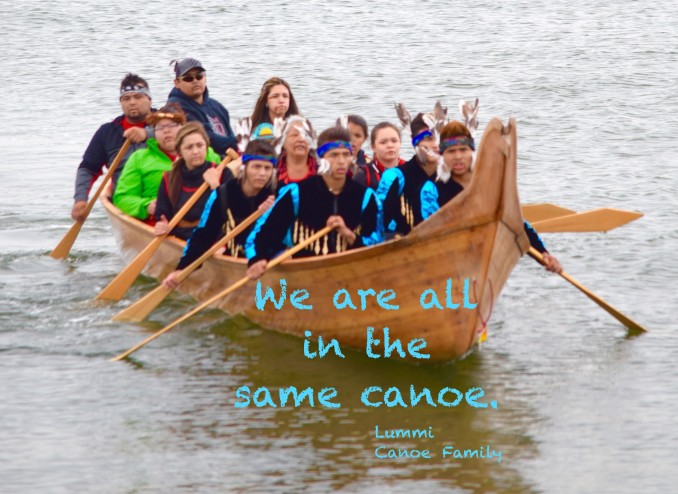
Once on land, We gathered around the canoe to listen. The young woman who leads the Lummi Canoe Family brought the message of the canoe. Ceremonial Chief Jewel James, Chair of the Lummi Treaty Protection Task Force, celebrated the upholding of the 1855 Treaty and the victory at Cherry Point. He described the 1300 mile journey their leaders travelled from their home territory of mountainous temperate rainforests and craggy Pacific beaches to southeastern Montana’s parched grasses and gentle hills. They carried with them a twenty-two foot cedar totem pole, strapped to a flatbed truck to stand with the Northern Cheyenne whose lives and livelihoods are threatened by more coal mines. They continued with the totem on a 16-day journey to eight other communities, all of whom find themselves in the path of coal trains, big rigs, or tar sands pipelines and oil tankers. They ended in Tsleil-Waututh land in North Vancouver, a pivotal community in the fight against increased oil tanker traffic. There, the totem is permanently planted, looking out to the Pacific.
Gripping sprigs of cedar and the point of a canoe paddle, he told us they named the totem Kwel hoy’ or We Draw the Line. He said, to get to the future we want for our grandchildren we must first say ‘no!’ Then we must have no fear.
He told us it has been the women who have been in the forefront of their protests. The women have had to tell the men to Warrior Up! He spoke specifically to people of faith, saying the protestant churches apologized in 1997 for the atrocities of the past: “We don’t need apologies,” he said, “we need you to take action.” To Catholics he said, “The Pope has written a great encyclical on the climate, but Catholics must now come out in force.”
During our holy moment at March’s Point I was emboldened by the faces of the Lummi: strong, resolute, intelligent, defiant and ready. They spoke easily with those of us beyond their neighborhood: brown skinned and pink together. And the presence of children and the leadership of the youth was amazing.
What brought me to tears as we sat in the shadow of the Goblin of Fracked Gas, was the sight of all the Lummi elders, holding hands and blankets over their mouths and noses to block the stench of the refineries seeping in to our communion with each other.
But even more, the longer we stood together, the more I was aware of a Presence with us, indescribable with words. A sacred Is-ness we often don’t notice in the course of our industrial lives. All the time we were together, two bald eagles circled on the clouded drafts directly overhead, wings spread, soaring in and out of the sun. The Chief paused in his speech at one point and simply pointed above. And I noticed.
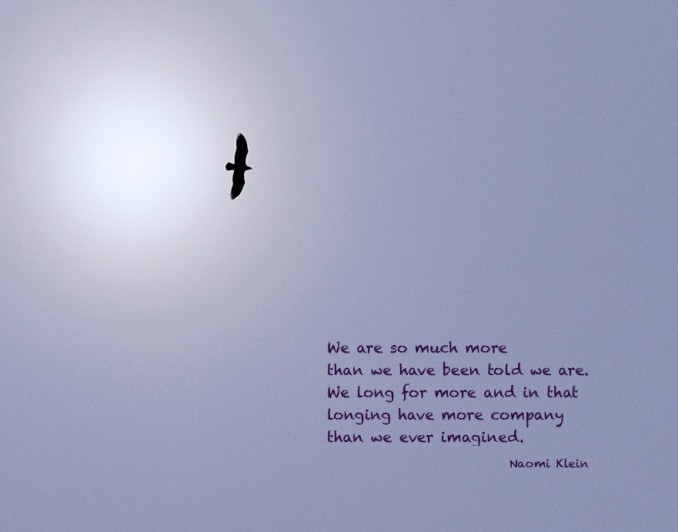
This the first in a series of 3 articles on the Anacortes protests. You can read Part 2 here.

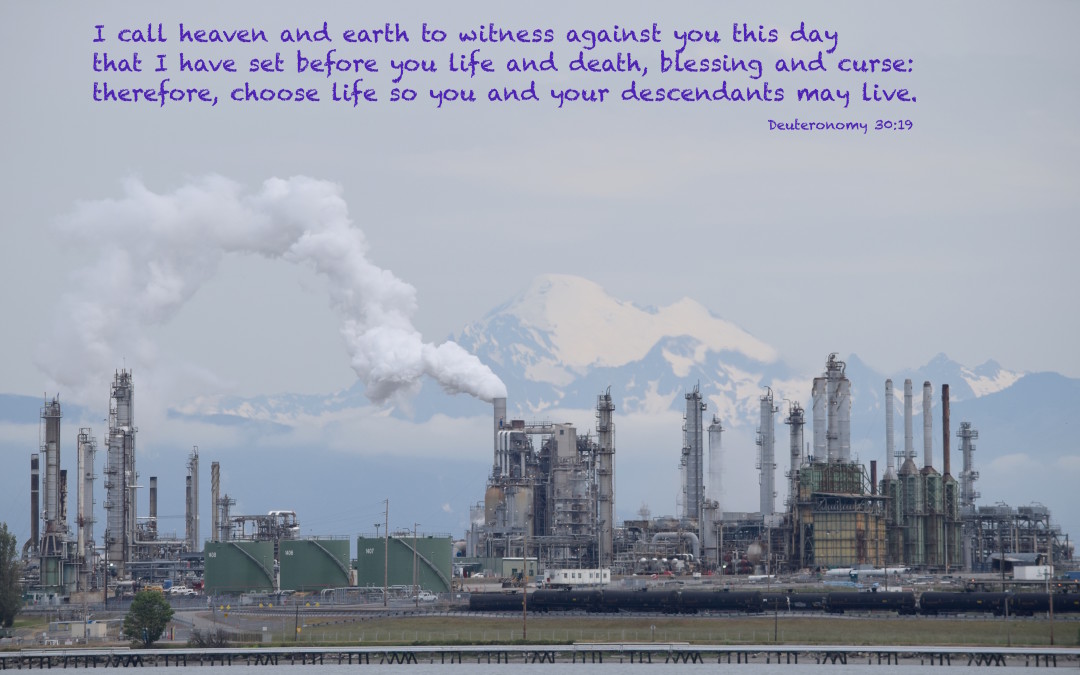
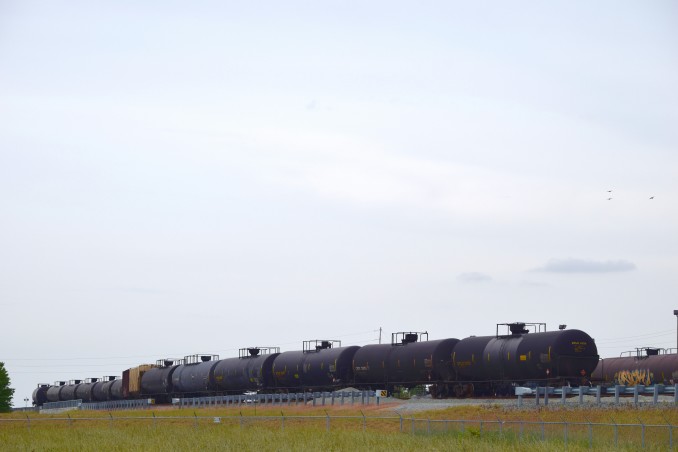
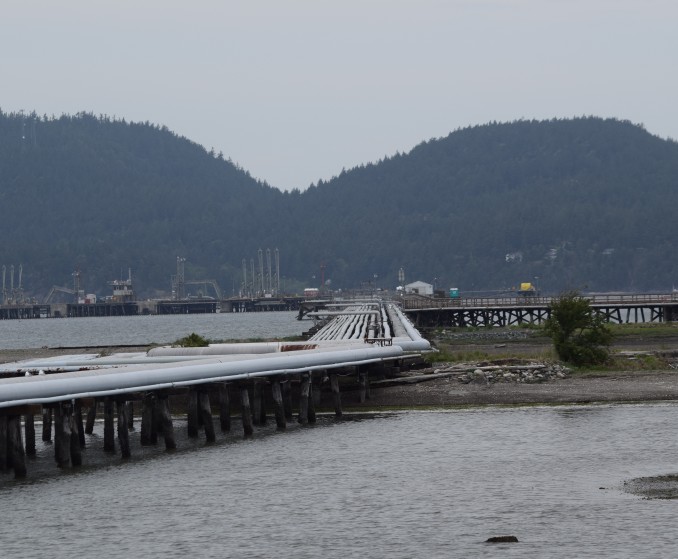
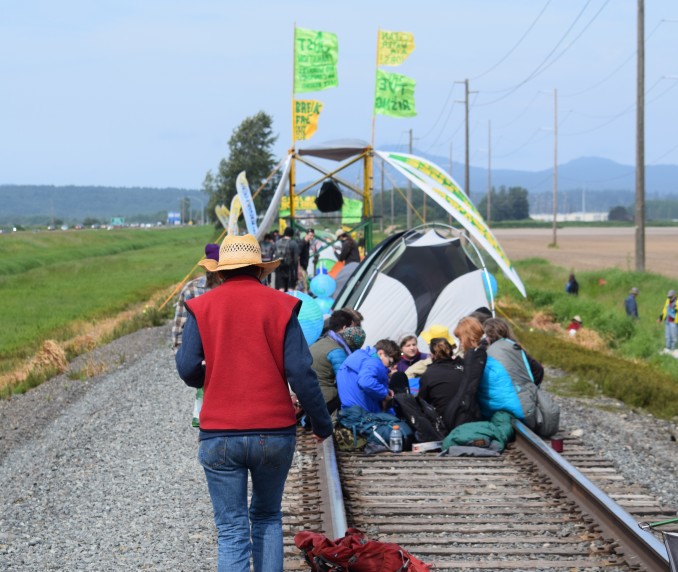
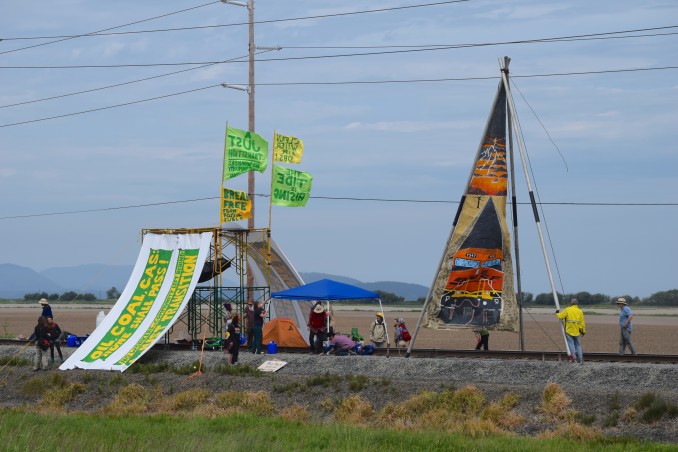
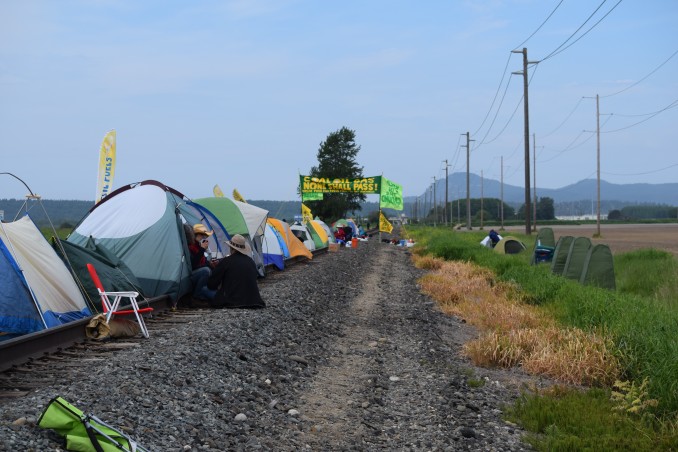
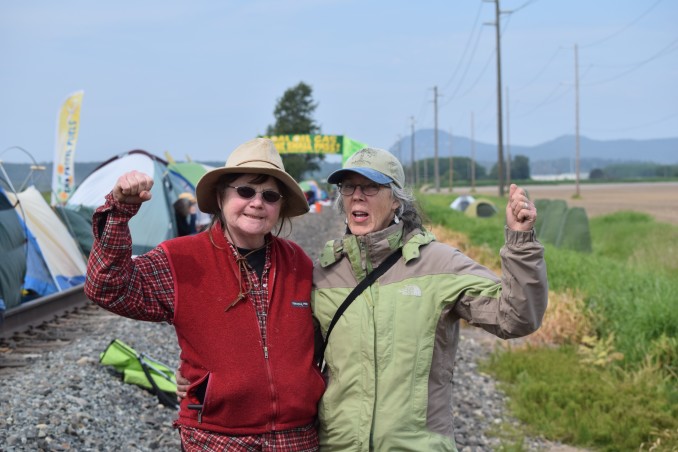
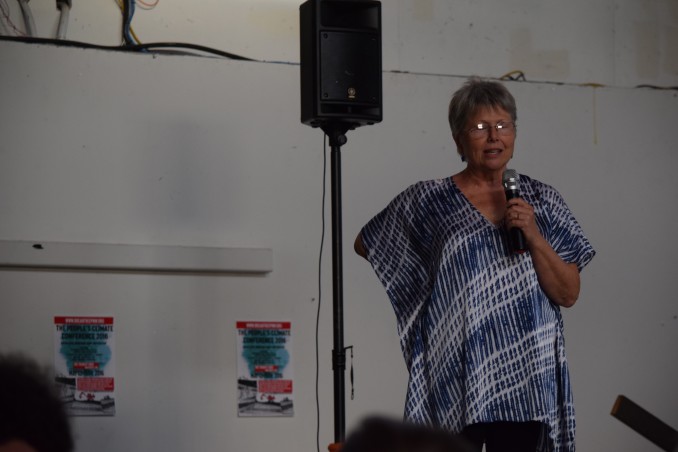
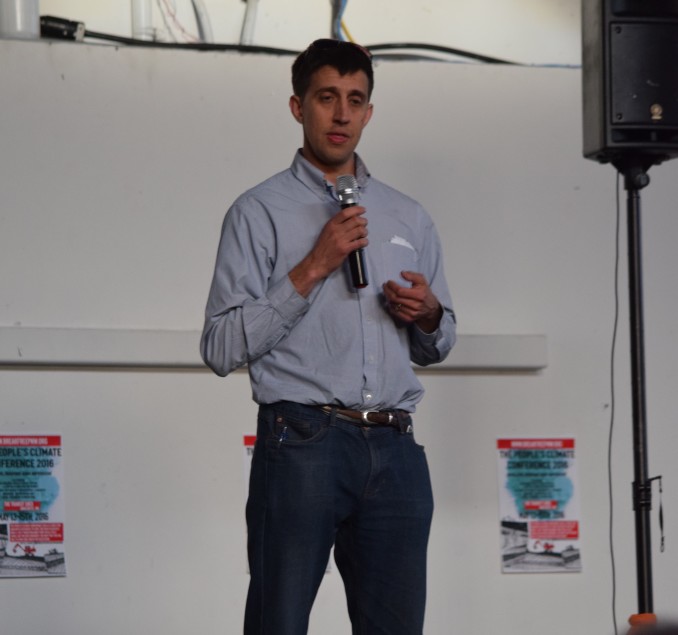
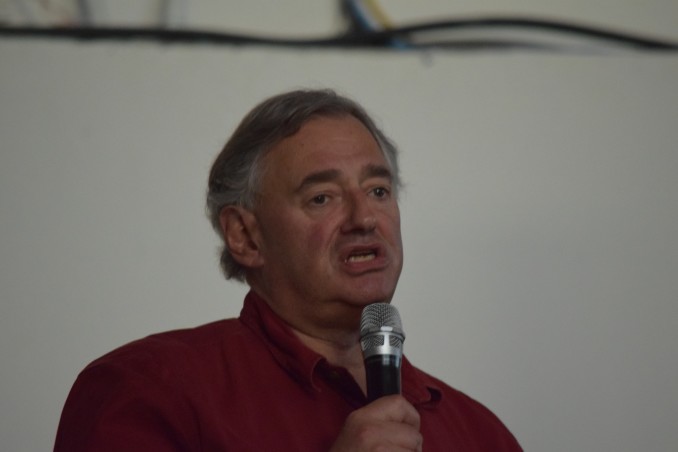
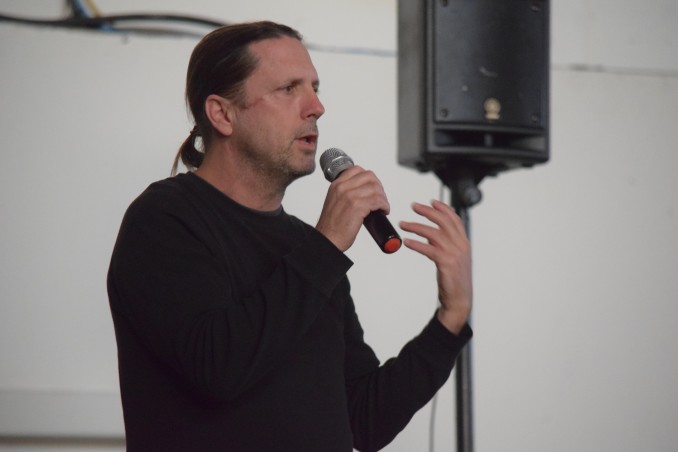
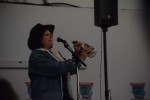
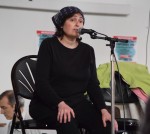

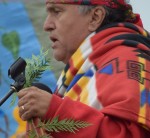

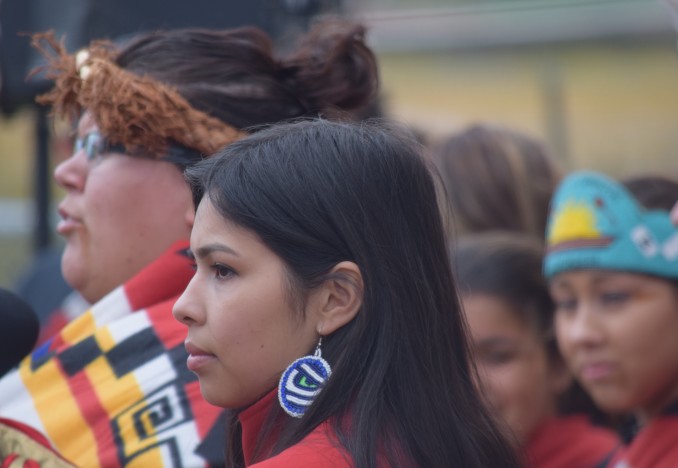
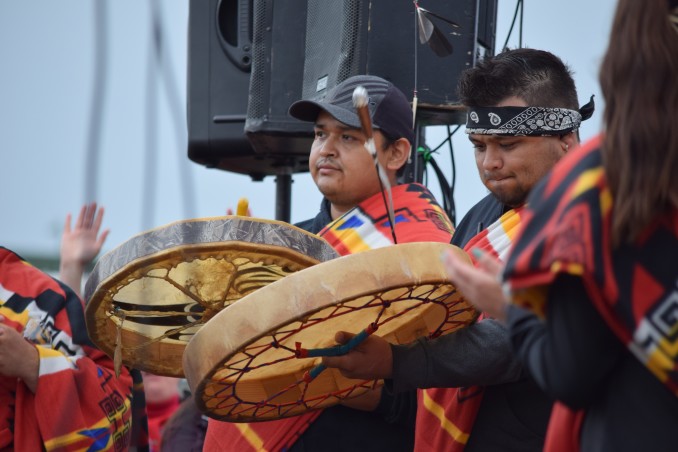

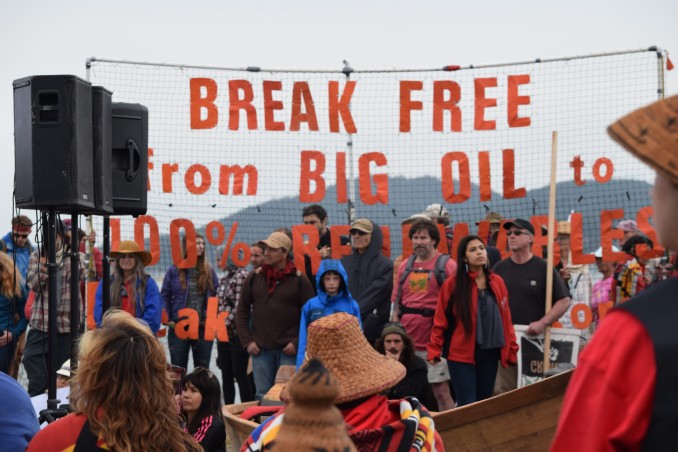
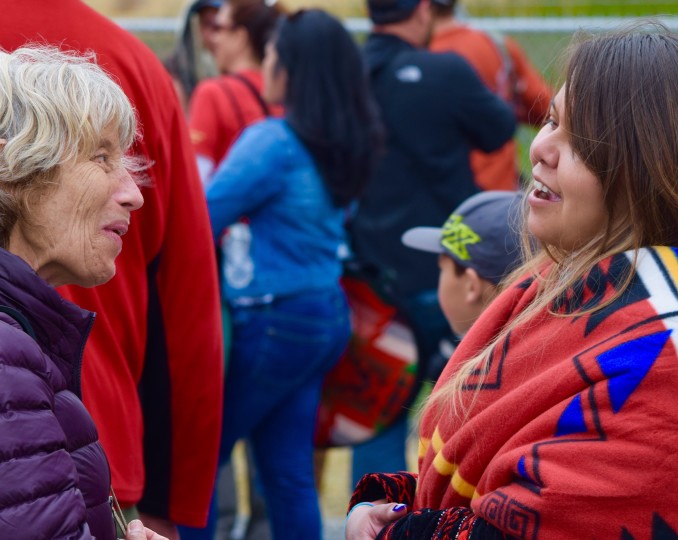
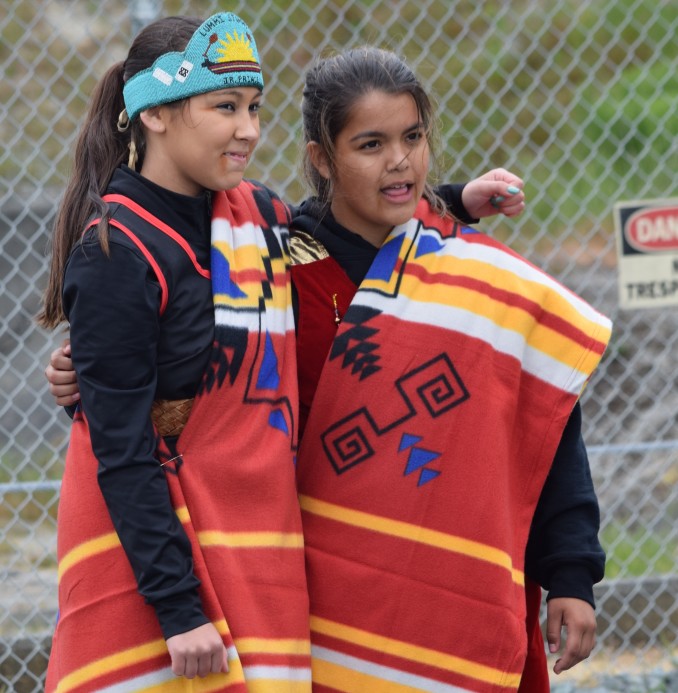



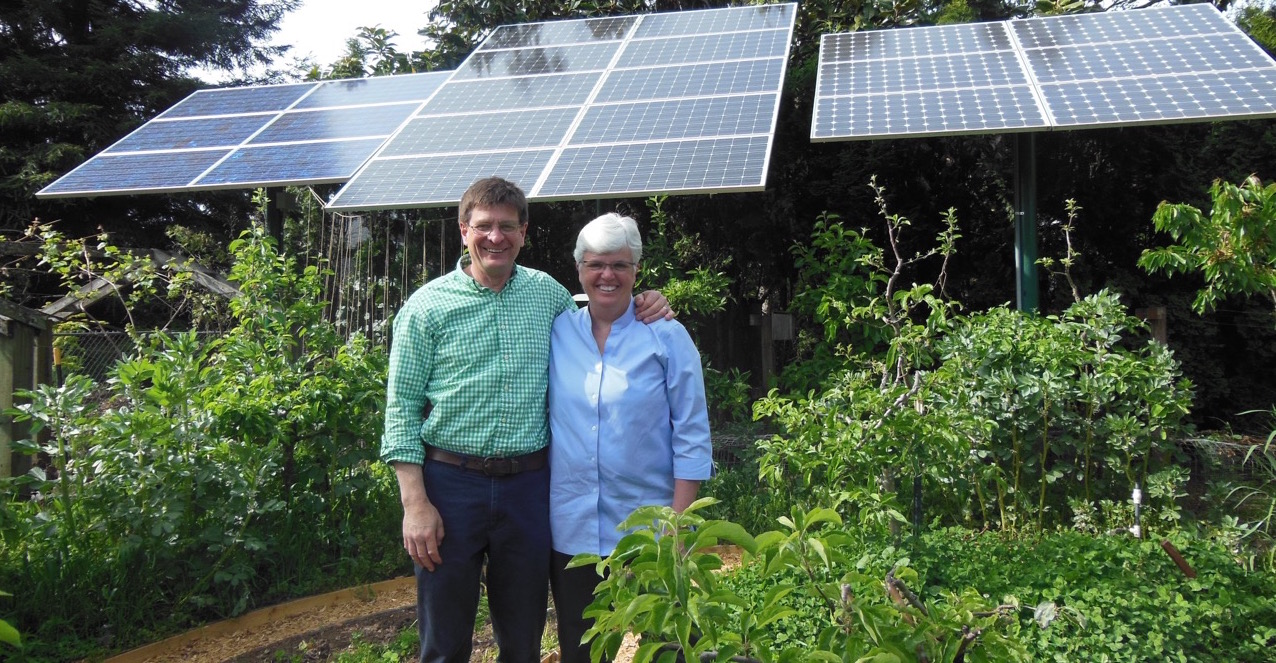





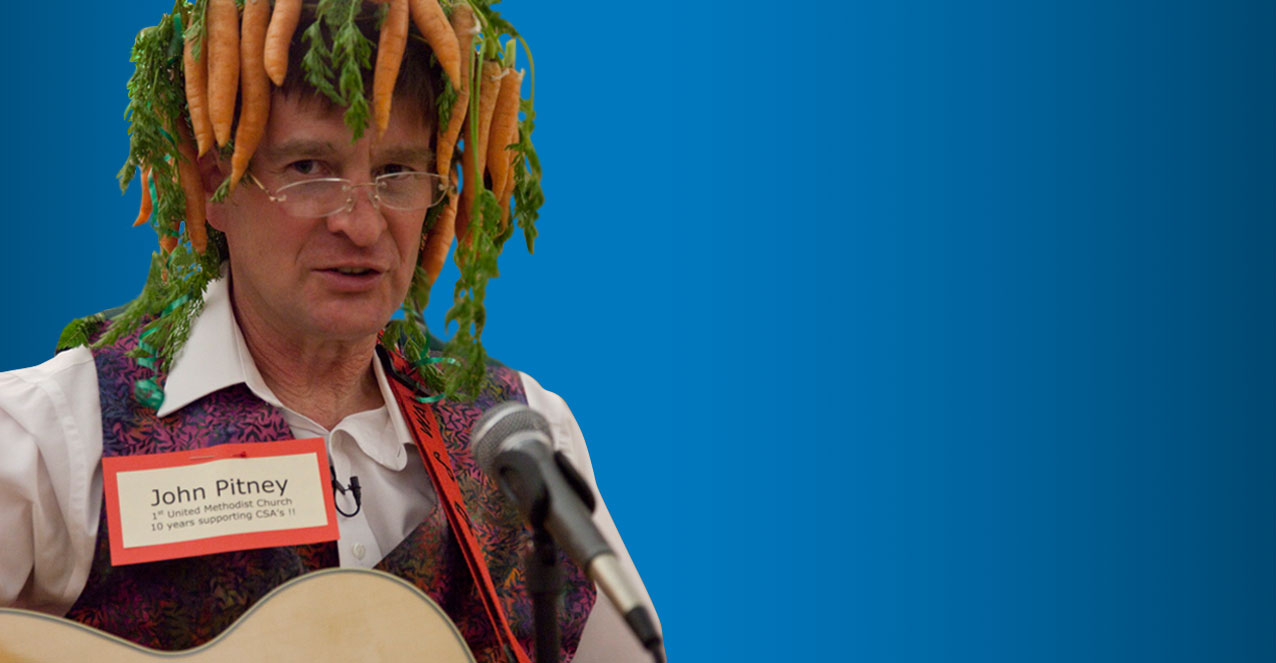
Recent Comments